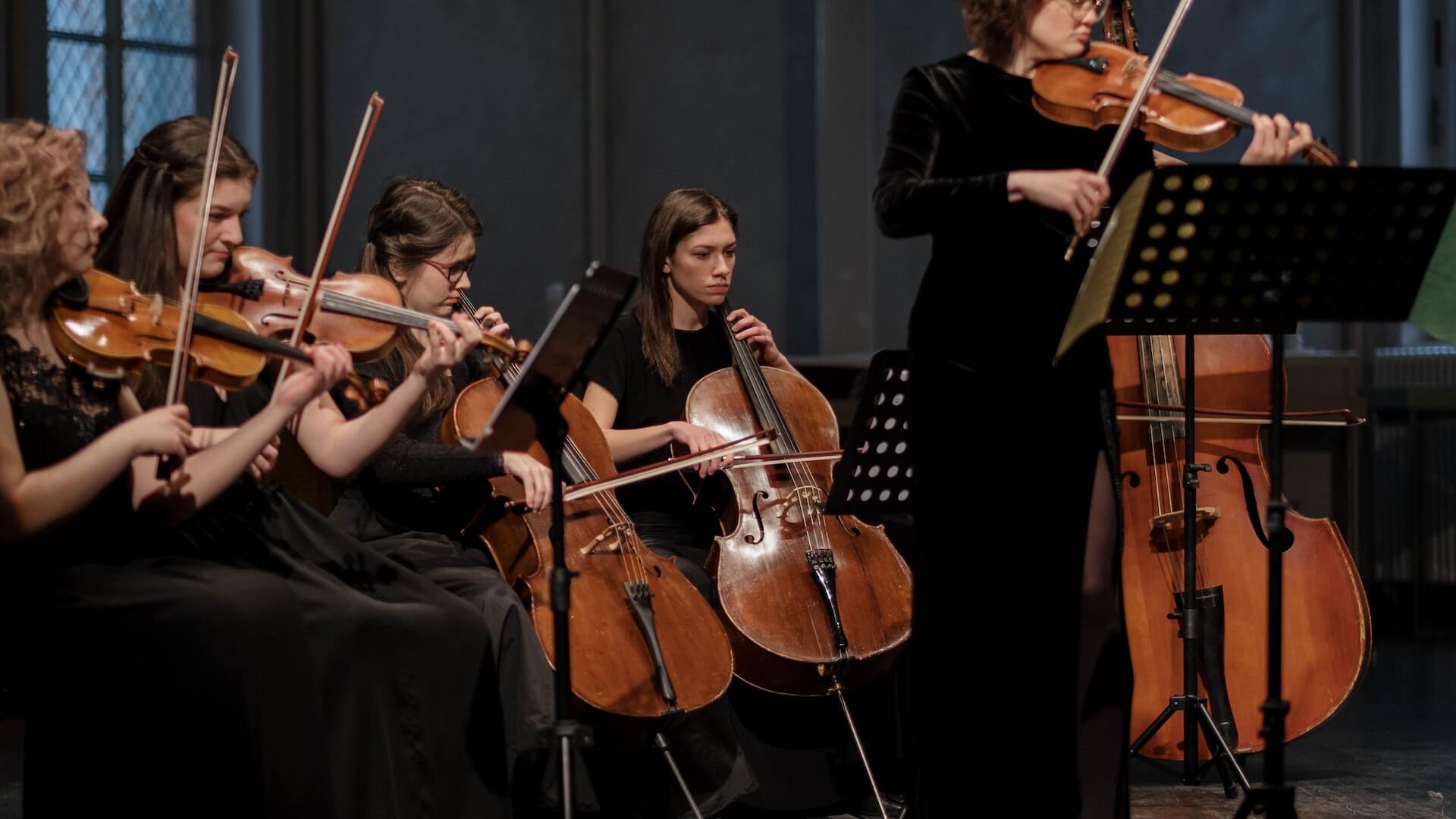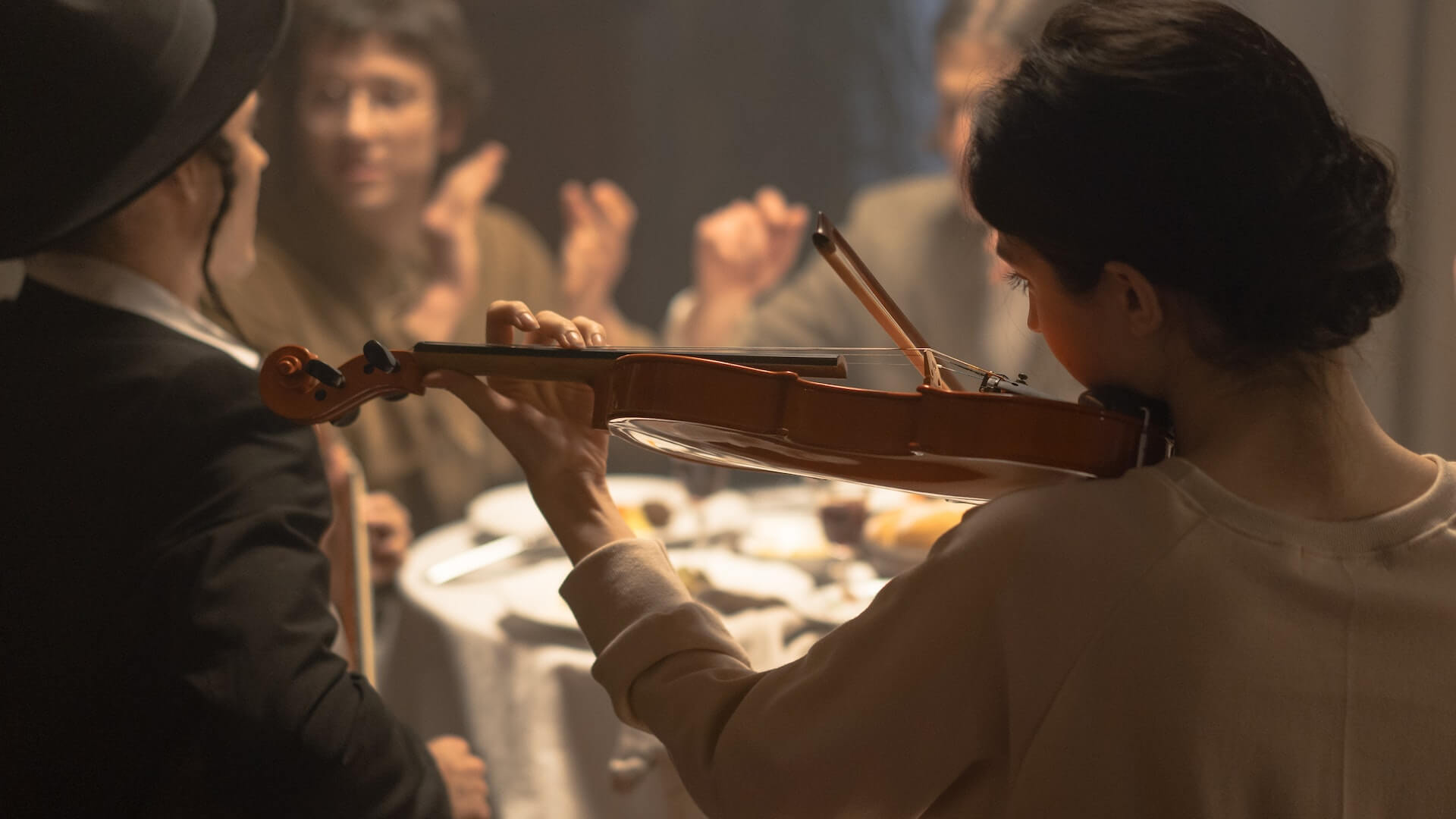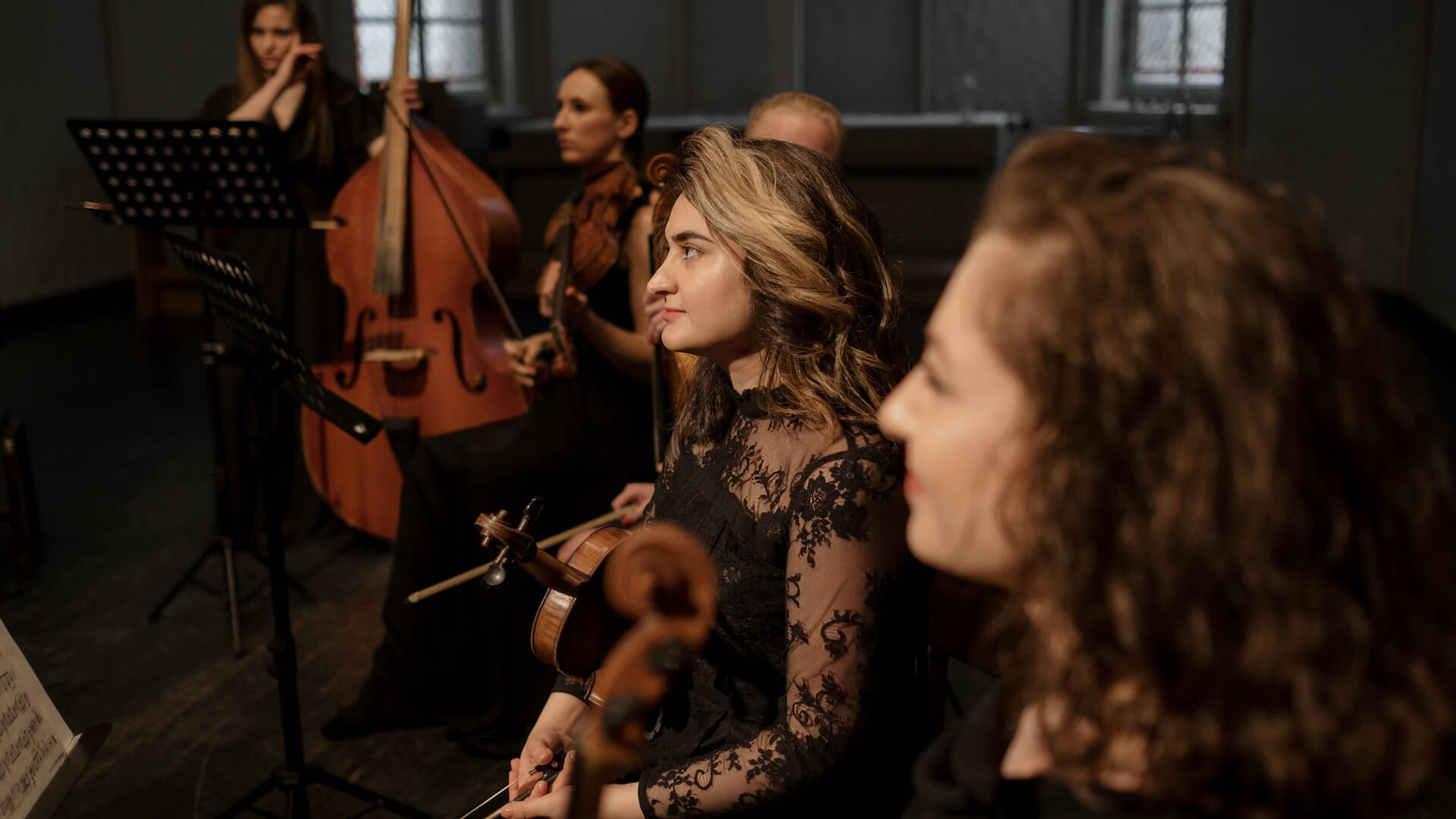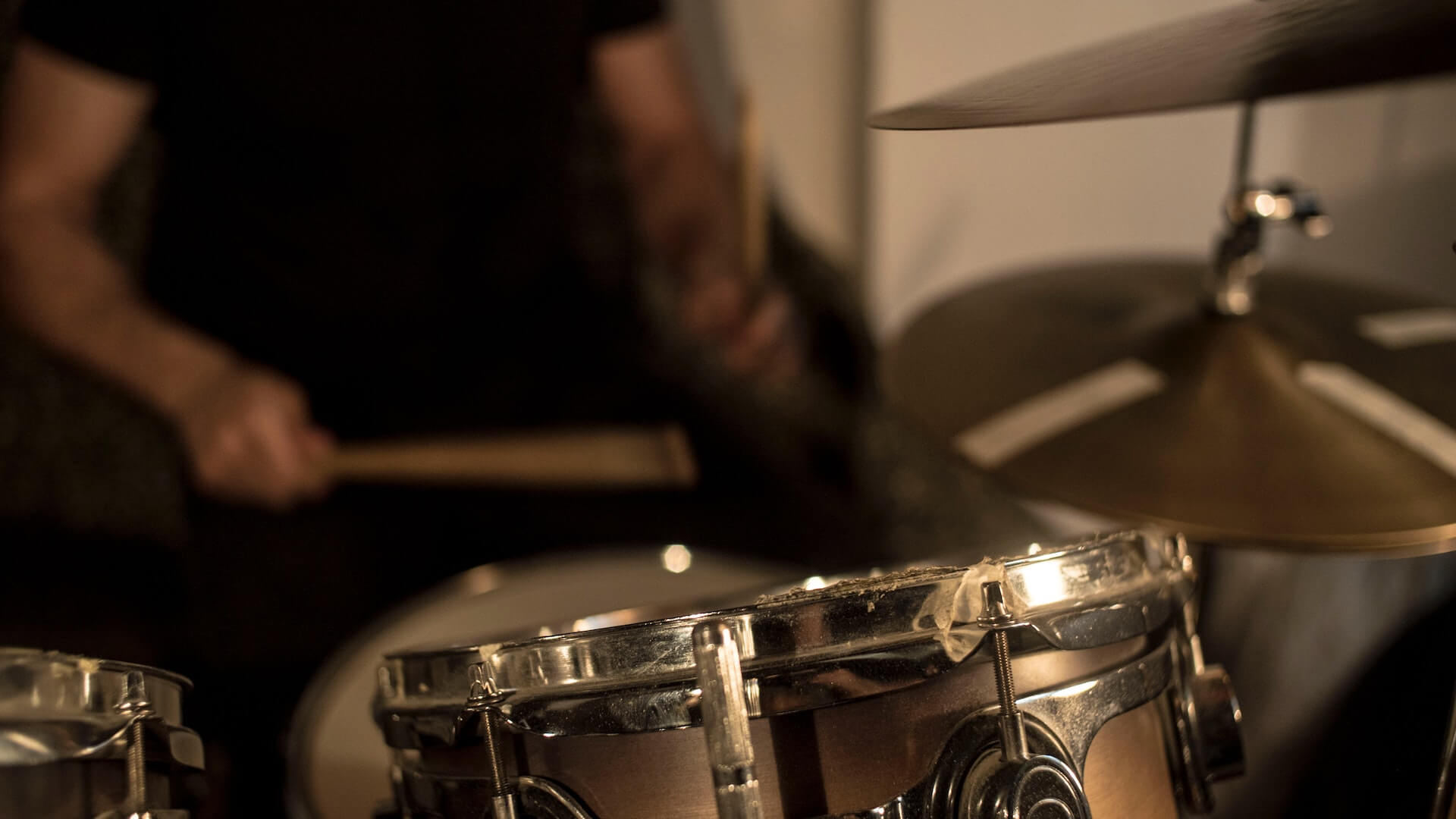Classical music has been around for centuries and its timeless beauty has captivated audiences for just as long. From the intricate melodies of Bach to the powerful symphonies of Beethoven, classical music has a way of stirring the soul and transporting us to a different time and place. It’s no wonder that this genre has stood the test of time and remains a beloved form of artistic expression today. In this blog post, we will delve into the world of classical music and explore its magic. We’ll discuss its history, the different types of classical music, and why it continues to be relevant and beloved by so many people. Whether you’re a lifelong fan or someone who is just curious about this genre, this post will unlock the secrets of classical music and help you appreciate its timeless beauty.
Introduction: The allure of classical music
Classical music has an undeniable allure that has captivated audiences for centuries. With its rich history and timeless beauty, it has the power to transport listeners to another world and evoke a wide range of emotions. From the delicate melodies of Mozart to the grand symphonies of Beethoven, classical music has stood the test of time and continues to resonate with people of all ages.

One of the most enchanting aspects of classical music is its ability to transcend cultural and linguistic barriers. Regardless of where you come from or what language you speak, the universal language of music allows you to connect with the emotions and stories expressed through the melodies and harmonies. It speaks to the depths of the human soul, touching our hearts and stirring our imagination.
Moreover, classical music offers a unique listening experience that is unlike any other genre. Its intricate compositions, masterful orchestration, and the sheer talent of the musicians create a symphony of sound that is both awe-inspiring and immersive. Whether you are attending a live concert or listening to a recording in the comfort of your home, the power and precision of the instruments and voices transport you to a world of beauty and elegance.
Additionally, classical music has a profound impact on our well-being. Numerous studies have shown that listening to classical music can reduce stress, improve concentration, and enhance cognitive function. Its soothing melodies and harmonies have a therapeutic effect, calming the mind and providing solace in our fast-paced and hectic lives.
A brief history of classical music
Classical music, with its rich and timeless beauty, has captivated audiences for centuries. To truly appreciate this magnificent genre, it is essential to delve into its fascinating history.
Classical music traces its roots back to the medieval and Renaissance periods, where religious chants and polyphonic compositions began to flourish. With the advent of the Baroque era, renowned composers like Johann Sebastian Bach and George Frideric Handel emerged, defining the early foundations of classical music.
The Classical period, spanning from the mid-18th to early 19th century, witnessed the rise of musical geniuses such as Wolfgang Amadeus Mozart and Ludwig van Beethoven. This era’s music was characterized by its elegant melodies, balanced structures, and refined expression.
As the 19th century unfolded, the Romantic period brought forth a wave of emotional and dramatic compositions. Composers like Franz Schubert, Frederic Chopin, and Pyotr Ilyich Tchaikovsky embraced intense personal expression, painting vivid musical landscapes that stirred the deepest emotions within listeners.
Moving into the 20th century, classical music underwent a period of experimentation, with composers like Igor Stravinsky and Claude Debussy pushing the boundaries of traditional musical conventions. This era, known as the Modern period, gave birth to a wide range of styles and techniques, showcasing the diversity and evolution of classical music.
Throughout its history, classical music has transcended time and cultural boundaries, leaving an indelible mark on the world of art. Its compositions evoke profound emotions, tell captivating stories, and transport listeners to realms of beauty and imagination.
The unique qualities of classical music
One of the most notable aspects of classical music is its complex and intricate compositions, often composed by legendary maestros such as Bach, Mozart, and Beethoven.
Unlike popular music that often follows a predictable structure, classical music allows for boundless creativity and artistic expression. It embraces a wide range of emotions, from the dramatic and intense to the delicate and serene. The symphonies, concertos, sonatas, and operas of classical music take listeners on a journey, evoking deep emotions and stirring the soul.
Another remarkable quality of classical music is its ability to transcend time and connect generations. These timeless compositions have been treasured for centuries, captivating audiences across different eras. They have the power to transport listeners to different time periods and cultures, offering a glimpse into the past while remaining relevant in the present.
Classical music also showcases the extraordinary talent and skill of virtuoso musicians. From the nimble fingers of pianists to the soaring melodies of violinists, classical music demands technical prowess and a deep understanding of musical nuances. It is a testament to the dedication and passion of these musicians, who breathe life into the intricate notes and bring forth the true essence of the compositions.
Furthermore, classical music has the ability to stimulate the mind and enhance cognitive abilities. Numerous studies have shown that listening to classical compositions can improve focus, promote relaxation, and even boost creativity. The intricate harmonies and melodies engage the brain in a unique way, making it an ideal choice for those seeking intellectual and emotional stimulation.
The emotional power of classical compositions
Classical music has long been revered for its ability to evoke deep and powerful emotions within listeners. From the delicate melodies of Mozart’s symphonies to the thundering crescendos of Beethoven’s symphonies, classical compositions have the remarkable ability to transport us to different worlds and awaken a wide range of emotions within our souls.

One of the unique aspects of classical music is its ability to convey emotions without the use of lyrics. Unlike popular music, which often relies on lyrics to convey meaning and emotions, classical compositions rely solely on the interplay of various instruments and the skillful manipulation of musical elements such as tempo, dynamics, and melody.
The emotional power of classical compositions lies in their ability to tap into universal human experiences and emotions. Whether it’s the melancholic longing present in Chopin’s Nocturnes or the triumphant jubilation found in Handel’s “Hallelujah” chorus, classical music has the ability to touch the deepest parts of our being and stir our souls.
Moreover, classical music has the capacity to elicit a wide range of emotions, from joy and happiness to sadness and contemplation. It can transport us to moments of intense passion, invoke a sense of nostalgia, or even bring us to tears with its sheer beauty and emotional depth.
Listening to classical music allows us to experience a kaleidoscope of emotions, as the music takes us on a journey through the complexities of the human experience. It has the power to uplift our spirits, provide solace in times of sorrow, and ignite our imagination.
In a world filled with constant noise and distractions, classical music provides a sanctuary for introspection and emotional connection. It invites us to slow down, immerse ourselves in its timeless beauty, and engage with our emotions on a profound level.
Exploring the different genres and styles within classical music
One of the most well-known and beloved genres within classical music is symphonic music. Symphonies are large-scale compositions typically performed by a full orchestra. They often consist of multiple movements that showcase a variety of musical themes and motifs. Composers like Ludwig van Beethoven, Wolfgang Amadeus Mozart, and Gustav Mahler have left an indelible mark on symphonic music, creating masterpieces that continue to captivate audiences to this day.
Another genre within classical music is chamber music. Chamber music is characterized by its intimate and small-scale nature, often performed by a small group of musicians. String quartets, for example, are a popular form of chamber music that features two violins, a viola, and a cello. This genre allows for intricate musical interplay between the musicians and offers a more intimate listening experience.
Opera is yet another genre within classical music that combines music, singing, and dramatic storytelling. Known for its elaborate sets, costumes, and powerful vocal performances, opera has the ability to transport audiences to different worlds and evoke a range of emotions. Composers like Giuseppe Verdi, Richard Wagner, and Wolfgang Amadeus Mozart have created iconic operas that continue to be performed and celebrated worldwide.
Beyond these genres, classical music encompasses a multitude of styles, such as baroque, romantic, and contemporary. Each style offers its own unique characteristics and musical language, providing endless opportunities for exploration and discovery. From the intricate counterpoint of baroque music to the emotional intensity of romantic compositions, each style within classical music offers a distinct experience for listeners.
The impact of classical music on other genres
The impact of classical music on other genres cannot be overstated. Throughout history, classical music has served as a source of inspiration for countless musicians and composers across a wide range of genres. From rock to hip-hop, jazz to electronic music, elements of classical compositions can be found woven into the fabric of modern music.

One notable example of the influence of classical music on other genres is the incorporation of orchestral arrangements. Many rock bands, such as Queen and Led Zeppelin, have incorporated symphonic elements into their music, adding a grandiosity and depth that would not be possible without the influence of classical music.
In hip-hop, classical samples have become a staple in the production process. Artists like Kanye West and JAY-Z have utilized samples from classical compositions to create unique and captivating beats, blending the old with the new in a way that resonates with listeners.
Furthermore, the complex harmonies and melodic structures found in classical music have influenced the development of jazz. Improvisation, a key component of jazz music, draws inspiration from the freedom and spontaneity found in classical compositions.
Even in the realm of electronic music, classical music has left its mark. Artists like Aphex Twin and Brian Eno have experimented with incorporating classical elements into their electronic soundscapes, resulting in a fusion of traditional and modern musical styles.
The benefits of listening to classical music
Listening to classical music offers a multitude of benefits that can enrich our lives in ways we may not even realize. Beyond its timeless beauty, classical music has the power to impact our emotions, improve cognitive function, and enhance overall well-being.
One of the most notable benefits of listening to classical music is its ability to evoke a wide range of emotions. The intricate melodies, harmonies, and dynamics of classical compositions can transport listeners to different emotional landscapes, from the serene and tranquil to the powerful and exhilarating. This emotional journey can provide a much-needed escape from the stresses of everyday life and offer solace and comfort during challenging times.
Moreover, numerous studies have shown that listening to classical music can have a positive impact on cognitive function. The complex structures and patterns found in classical compositions engage the brain in ways that stimulate critical thinking, problem-solving, and creativity. Additionally, the rhythm and tempo of classical music can enhance focus and concentration, making it an ideal companion for studying, working, or engaging in other mentally demanding activities.
In addition to its cognitive benefits, classical music also has the potential to improve overall well-being. It has been found to reduce stress and anxiety, promote relaxation, and even alleviate physical pain. The soothing and harmonious nature of classical compositions can create a sense of tranquility and inner peace, allowing listeners to unwind and find respite from the chaos of modern life.
Furthermore, classical music has the remarkable ability to transcend time and cultural boundaries. It connects us to the rich heritage of composers from various eras and allows us to appreciate the depth and beauty of their artistic expressions. By immersing ourselves in the world of classical music, we can gain a deeper understanding of history, culture, and human emotions, cultivating a sense of appreciation and empathy.
How to start appreciating and understanding classical music?
If you’ve always been curious about classical music but didn’t know where to begin, fear not! Here are some simple steps to help you start appreciating and understanding this timeless genre.

Firstly, immerse yourself in the music. Start by listening to some of the most famous and influential classical pieces. Beethoven’s Symphony No. 9, Mozart’s Symphony No. 40, or Bach’s Brandenburg Concerto No. 3 are excellent choices for beginners. Pay attention to the different instruments, the melodies, and the dynamics of the music. Let yourself be carried away by the emotions conveyed through the music.
Next, familiarize yourself with the composers. Each composer has their own unique style and contribution to the classical music world. Learn about their lives, their influences, and the historical context in which they composed. Understanding the stories behind the music can enhance your appreciation and make the listening experience more meaningful.
Don’t be afraid to explore different eras of classical music. From the Baroque period to the Romantic era, each period has its own distinct characteristics. Experiment with different composers and styles to discover what resonates with you the most. You may find yourself drawn to the passionate and dramatic works of the Romantic composers or the precise and mathematical compositions of the Baroque masters.
Consider attending live performances or watching recordings of orchestras and chamber ensembles. Seeing the musicians perform can deepen your connection to the music and give you a greater appreciation for the skill and artistry involved. Many cities have symphony orchestras or music festivals that offer affordable tickets, making it accessible for everyone to experience the magic of classical music.
Lastly, educate yourself through books, documentaries, or online resources. There are countless books and documentaries that delve into the history and intricacies of classical music. Online platforms such as streaming services and YouTube also offer a vast array of performances and educational content that can further enrich your understanding.
Resources and recommendations for exploring classical music further
If you’ve developed a newfound appreciation for classical music and want to dive deeper into this timeless art form, there is a wealth of resources and recommendations available to help you on your musical journey.
One of the best ways to explore classical music further is by attending live performances. Check your local concert halls, opera houses, and symphony orchestras for upcoming performances. Experiencing the music performed by talented musicians in a live setting can be a truly transformative experience.
In addition to live performances, there are numerous online platforms and streaming services that offer a vast library of classical music recordings. Websites like Spotify, Apple Music, and YouTube Music have extensive collections of classical music albums and playlists curated by experts in the field. Take advantage of these platforms to discover new composers, conductors, and performers.
Books and documentaries can also provide valuable insights into the world of classical music. Look for biographies of renowned composers such as Beethoven, Mozart, or Bach, to gain a deeper understanding of their lives and creative processes. Additionally, documentaries and films about classical music can offer a visual and auditory feast, allowing you to immerse yourself in the beauty and history of this genre.
If you’re interested in learning more about the technical aspects of classical music, there are online courses and tutorials available. Platforms like Coursera and Udemy offer courses taught by music professors and experts, covering topics such as music theory, composition, and the history of classical music. These resources can help you develop a deeper appreciation for the intricacies and complexities of this art form.
Lastly, don’t hesitate to engage with fellow classical music enthusiasts. Join online forums, social media groups, or local music communities where you can discuss your favorite compositions, exchange recommendations, and learn from others. Building a network of like-minded individuals can enhance your musical journey and provide valuable insights and perspectives.
Conclusion
From the enchanting melodies of Mozart to the emotional depth of Beethoven’s symphonies, classical music has captivated audiences for centuries. By delving into the history, key composers, and iconic compositions, we hope to have sparked a newfound appreciation for this rich and enduring genre. So go ahead, immerse yourself in the magic of classical music, and let its timeless beauty transport you to another world.



